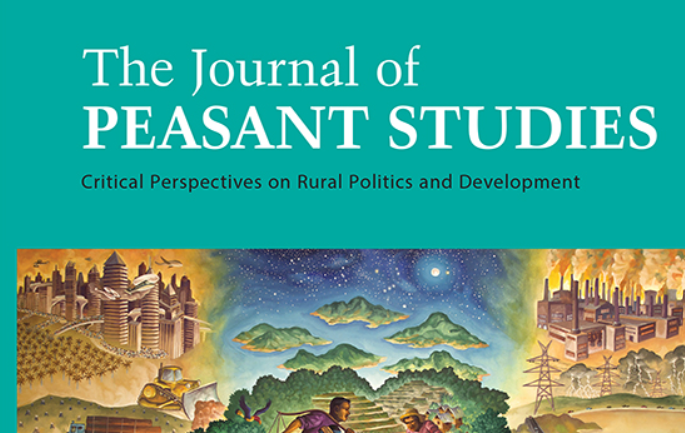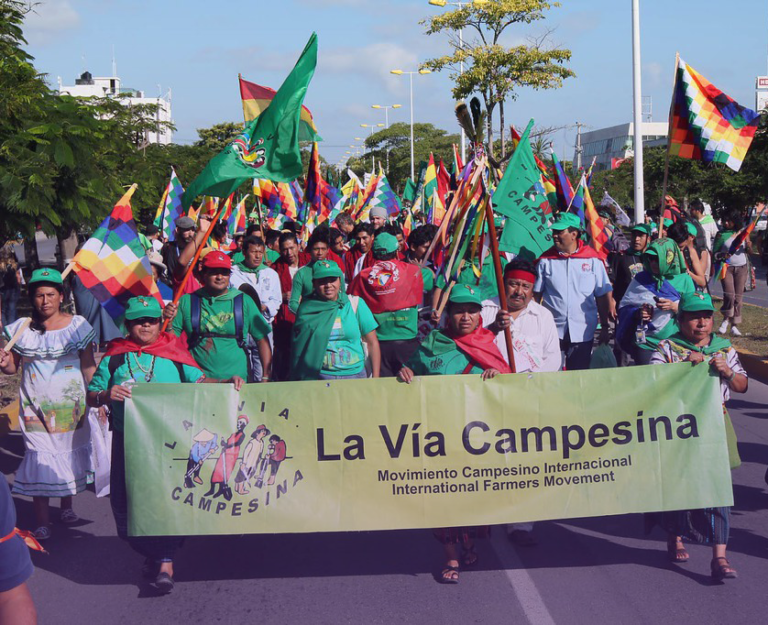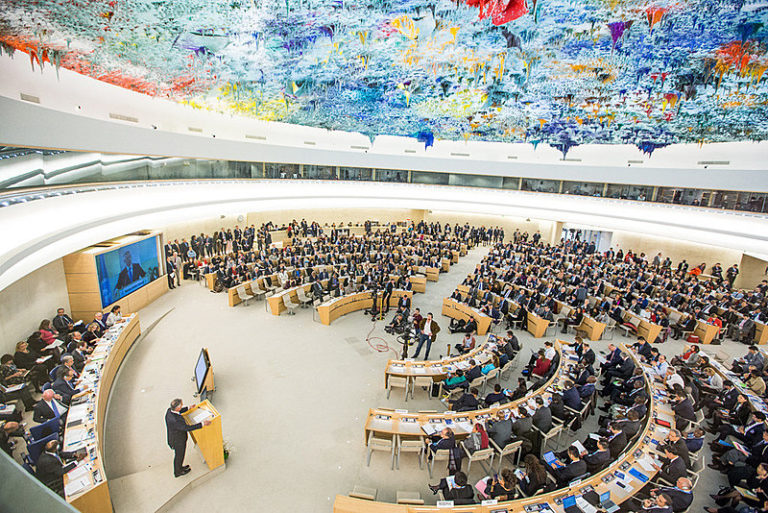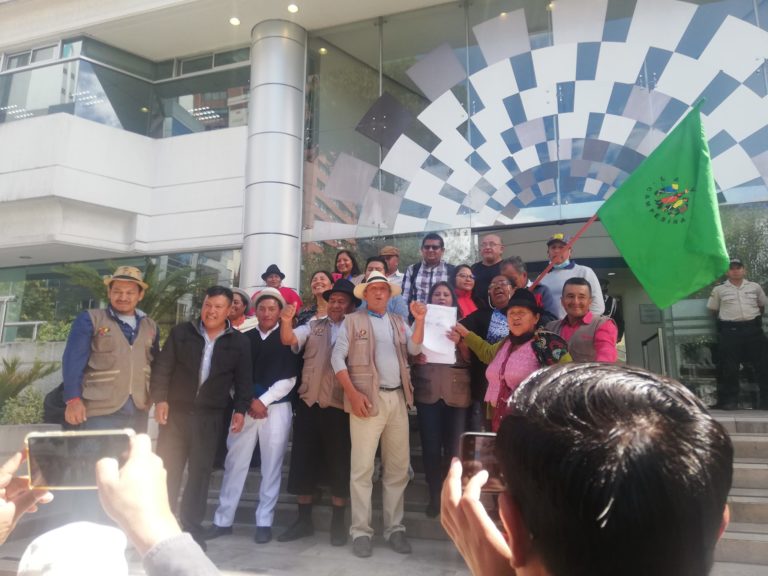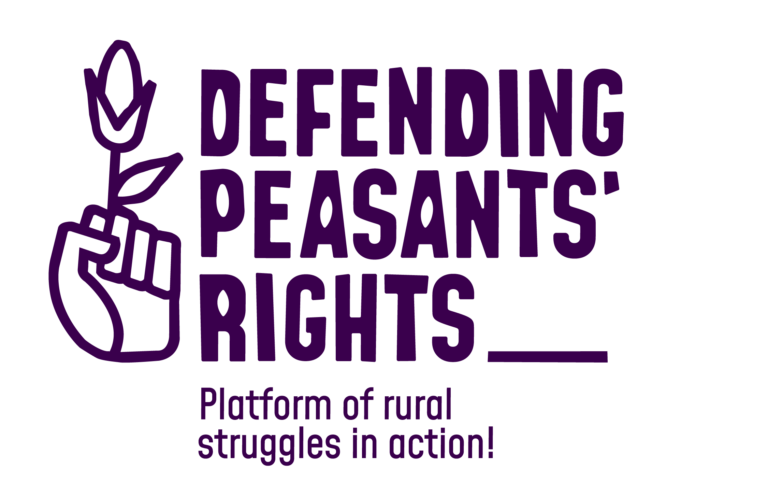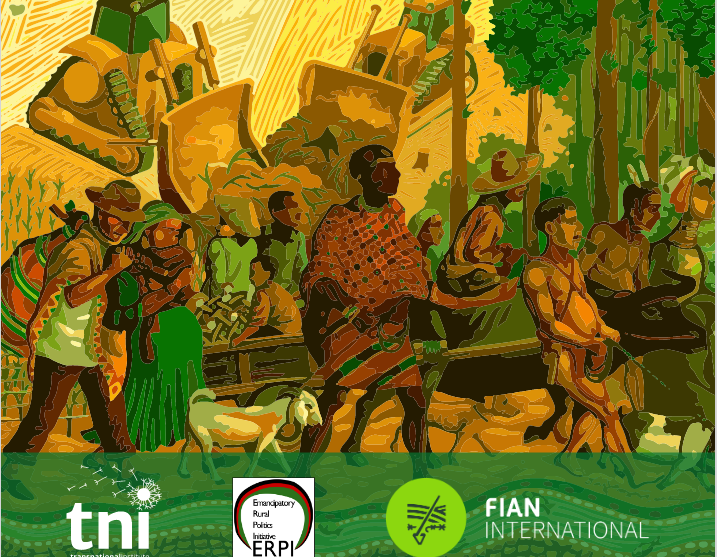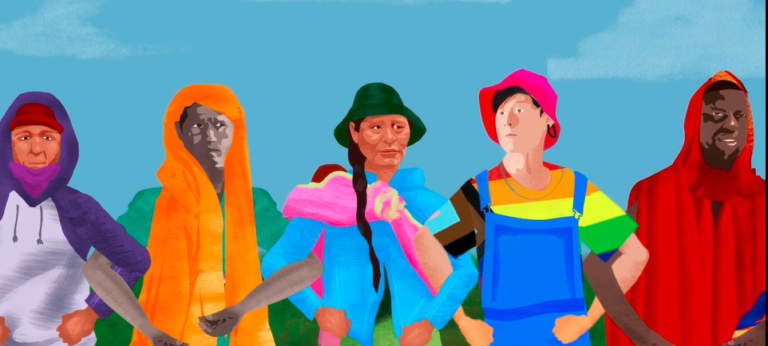The United Nations Declaration on the rights of peasants and other people working in rural areas
This paper was published in October 2019 in the Journal of Peasants Studies, in its Grassroots Voices section. They are described as : “views that are written and presented in a non-academic style which provide important insights and information relevant to critical rural development studies. Grassroots Voices are intended to share wisdom and analysis direct from social movements, practitioners, and scholar-activists.“
Editor’s introduction
Seventeen years of struggle. That’s what it took for the United Nations to adopt – on 17 December 2018 – the Declaration on the Rights of Peasants and Other People Working in Rural Areas (UNDROP 2018). UNDROP recognises the dignity of the world’s rural populations, their contributions to global food production, and the ‘special relationship’ they have to land, water and nature, as well as their vulnerabilities to eviction, hazardous working conditions and political repression. It reiterates human rights protected in other instruments and sets new standards for individual and collective rights to land and natural resources, seeds, biodiversity and food sovereignty. Readers of this Grassroots Voices forum will encounter some of the key actors that made the Declaration happen: peasant activists from Indonesia, Belgium, France, Germany, Senegal and Argentina; a farmworker union activist from the United States; a women’s rights activist from Spain; a Bolivian diplomat; the Indian leader of a transnational Catholic farmers’ movement; an advocate for small-scale fishers from Uganda; a Swiss jurist; an indigenous peoples’ rights leader from Mexico who had participated in the negotiations of the UN Declaration on the Rights of Indigenous Peoples (UNDRIP); and human rights advocates from CETIM and FIAN International, two organisations that played key supporting roles in the process. Together they describe a new kind of people’s diplomacy and an innovative, bottom-up process of building alliances, lobbying, and authoring international law.

